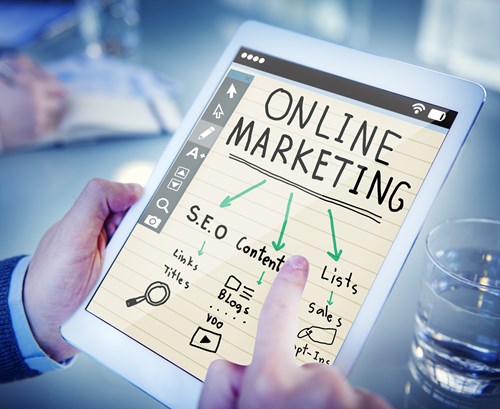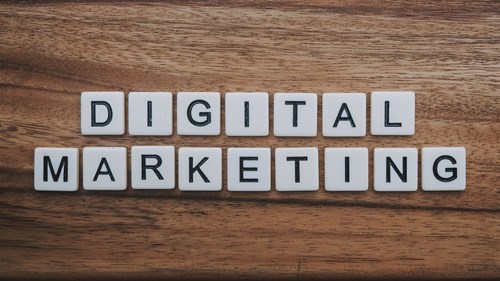Advertising
Google Ads vs. Facebook Ads
juli 26, 2020

Advertising
The age-old battle of Google Ads vs. Facebook Ads. Which is better? Which gives more conversions? Which one should I be using?
Well, find out all the answers to your questions when it comes to Google Ads vs. Facebook Ads in this post, and take your online marketing strategy to the next level.
Find out which platform wins here and easily optimise your online advertising strategy
With Google in the blue corner and Facebook in the red corner… who will win the battle of Google Ads vs. Facebook Ads?
Well, find out all the answers to your questions when it comes to Google Ads vs. Facebook Ads in this post, and take your online marketing strategy to the next level.
Google Ads vs. Facebook Ads – what are the differences?
Before we dive into the depths of Google Ads vs. Facebook Ads, let’s take a look at the overall differences between the two ad platforms.
Google Ads
Google Ads, or previously known as Google AdWords, is the biggest paid advertising platform that marketers use. Google Ads works by targeting users’ keywords with text-based ads in Google searches (called Google search network) and displaying graphic or text-based Ads on Google’s partner sites (display network).
Google Ads works in two ways. First, by letting businesses bid on words that their users search for, otherwise known as keywords. This is part of their search network. You can read more in-depth about bidding on keywords here.
The second part of Google Ads is the display network which takes care of the ads we usually see on Google’s partner sites. These ads are typically banner ads, Google Shopping or ad links.
If we take a look at the example below, you can see the ads on the search engine result page (SERP). These are displayed at the top of the search – where they get the most traffic and coverage.
These two websites have utilised Google Ads and have paid to be featured when the words “learn English” is searched. The rest of the results are organic results, meaning that the websites have not paid to be shown in the search results.
If a user clicks on the ad link, the business would pay for the advertisement, hence the name pay per click (PPC).
Google Ads also offers other features that can be used for advertising. For example, Google Shopping is a very effective way to showcase your products.
Google Ads offers many different features when it comes to Google Ads vs. Facebook Ads, all of which can benefit your business.
Facebook Ads
Advertising via Facebook Ads in the Google Ads vs. Facebook Ads battle has become increasingly more popular with the rise of social media. You may also know it by the name paid social advertising.
Facebook offers businesses a lucrative opportunity to advertise, and with a large number of users, Facebook can help brands reach a large audience and get their name out there.
Rather than targeting keywords as Google Ads does, Facebook Ads targets users based on their online behaviour, location, profile, and interests.
In the Google Ads vs. Facebook Ads battle, Facebook offers marketers a more visual way to reach their audience. Facebook Ads offers ads to be shown in the newsfeed, Messenger, and Instagram.
Now that we have established the difference between the two, we can go into the strengths and weaknesses of each platform.
The pros and cons of Google Ads
Most things in life have pros and cons. Google Ads vs. Facebook Ads is no different. Let’s start with Google Ads.
Pro: Incredible reach
As you probably know already, Google is the most used search engine with over 3.4 million search queries every day. Google’s huge reach is one of the main advantages of using Google Ads vs. Facebook Ads.
The large number of users that Google offers gives businesses a large potential for reaching global audiences and consumers. According to Google, the Google Display Network (which allows marketers to display visual Ads like banners to their target audience) reaches 90% of internet users worldwide.
This means that any marketing initiatives that you do with Google Ads vs Facebook Ads, big or small, will have the potential to reach global audiences, which is ideal if your goals are brand awareness- or recall-related.
Pro: Quality over quantity
Many marketers believe that you have to spend a lot of money on Google Ads to see results. However, that is not necessarily true.
With Google, quality is key. Creating high-quality and relevant ads will help you achieve better results than a poor, unrelated, and irritating ad.
This is because Google wants its users to have a positive user experience. If your ads are unhelpful and irritating, it gives Google users a negative experience, increasing the risk of them using a different search engine.
So, to give Google users a positive experience, Google regulates ads by their quality. The more relevant and useful your ad is, the better your quality score.
It is not only your ad that contributes to the quality score but also your keywords and website. These must be relevant and provide useful information on the subject.
Ensuring all of these aspects are optimised, will give you a higher quality score, and Google will reward you with lower costs and other great benefits.
Pro: The opportunities
You have a lot more opportunity to customise your ads for your target audience with Google Ads vs. Facebook Ads.
Google’s Shopping feature and location targeting offer businesses a lot more possibilities when reaching their audience and also give Google users a better experience.
For instance, if a user searches for “Hotels in Copenhagen”, Google will bring up relevant results, but also include features like user reviews, directions, hotel websites, and an interactive map.
Google Ads’ integrated system is smooth and easy to use, making it completely accessible to anyone with access to the internet.
Google Ads mostly features text-based Ads, when it comes to Google Ads vs. Facebook Ads. This is a huge missed opportunity if your business is not featured on this platform.
Con: Unspecified targeting
As we’ve discussed previously, Google Ads is a fantastic way to feature your business on a global scale. However, this may not be entirely useful if you are looking to specifically target a particular consumer type.
For instance, say you are looking to target men over the age of 50, who are unmarried and have no children. Unfortunately, Google Ads does not offer such specific targeting.
This is one of the drawbacks to Google Ads vs. Facebook Ads, and, therefore, Google may not be the best tool if you’re looking to specifically target a customer type that displays specific qualities.
Con: Landing pages are everything
Since Google judges its results by relevance and quality, you must ensure that your landing page is on point.
Fully optimising and maintaining your landing page can be a time-consuming task. But if you don’t do this, you can be heavily penalised, making all your effort, so far, pointless.
This is certainly another con to Google Ads in the Google Ads vs. Facebook Ads war, but if you are willing to put in the time to optimise your landing page, then it can certainly pay off.
The pros and cons of Facebook Ads
Just like Google Ads, Facebook Ads provides a large potential audience with 2.6 billion monthly users. However, this huge audience is not exactly the main selling point when it comes to Facebook Ads.
The unique feature of Facebook is that users share every single detail of their life on the social platform. Details about their relationship status, their current workplace, their location, or their likes and hobbies.
This cornucopia of information is the main attraction of Facebook Ads, as businesses can target their audience based on all this data, offering very specific, niche targeting – a marketer’s dream!
Pro: Target your ad
Facebook Ads allows marketers to create their ideal customers or “lookalike audiences”, based on information like Facebook users’ personal interests, their religious beliefs, or their marital status.
This allows marketers to reach their potential audience even further. Companies can target users similar to their existing customers, letting them reach people with the desired online behaviour.
Facebook Ads provides an intimate way to reach your ideal customer in the power struggle between Google Ads vs. Facebook Ads and offers a lot of opportunity for personal targeting.
Pro: Visual statement
Unlike Google Ads, Facebook Ads is a lot more visual-based and provides a great way to display eye-catching imagery or graphics.
The best Facebook Ads blend perfectly into the users’ existing newsfeed. The ads need to catch your audience’s attention without being too ostentatious.
A great way to reach this balance is to A/B test your Facebook Ads. You can find the most effective ad by testing two different variables against each other. For example, two different images can be tested, and you can then identify which achieves better results.
Facebook has a large emphasis on visual content in terms of Google Ads vs. Facebook Ads, which is a main selling point to many businesses and allows marketers to be creative.
Con: Facebook’s image
Although Facebook boasts an impressive user count, not everyone in the world uses the social platform. In a recent study, only 51% of teenagers (aged 13-17) actually use Facebook.
There is also an increasingly “uncool” connotation that is being associated with Facebook by younger generations. The Guardian reports that more than 3 million under-25s will leave Facebook in the UK and the US. So, this is a massive drawback if your ideal customer is under 25 and you are deciding between Google Ads vs. Facebook Ads.
Facebook Ads is great if your target audience actually uses the platform. If your audience doesn’t use Facebook as regularly as you hoped, it may be worth considering another method of advertising.
Con: Zero organic search
Unlike Google Ads, Facebook Ads does not show your business unless you’re willing to pay. Google naturally displays results that are organically related to the user’s search query. That’s one of the main functions of Google.
With Facebook Ads, if you are not investing in advertising, it is unlikely that a user will organically find your business in their newsfeed. A point worth considering when comparing Google Ads vs. Facebook Ads.
Google Ads vs. Facebook Ads pricing
When it comes to Google Ads vs. Facebook Ads in terms of costs, there is a big difference.
The price of Google Ads
For the search network, keyword costs depend on which industry you want to advertise in.
For instance, insurance- or finance-related keywords are at the higher end of the scale, whereas keywords in the clothing industry or travel and hospitality are on the cheaper end.
The average CPC for Google Ads is between $1-$2 for the search network, making it a reasonable method of advertising. However, if you are in the insurance industry, the CPC for keywords can be nearly $60. So, unfortunately, the cost greatly depends on your field of expertise.
When it comes to advertising with Google Shopping or utilising banner ads on Google’s display network, Google Ads can give you a competitive cost per click (CPC), with the average price being under $1.
There are a few other aspects that can affect your Google Ads budget. You can check out Google’s guide here.
The price of Facebook Ads
Just like with Google Ads, Facebook Ads CPC can vary, and the average CPC across all industries is $1.27. Again, financial and insurance ads are more expensive with an average CPC of $3.77.
However, the setup is very different from Google Ads. With Facebook Ads, you are bidding for ad placement since there is only so much space available.
But, you are competing with companies from many industries – not just the same as you are in.
For instance, say you are an ethical clothing brand and you are targeting young women in the UK, who are interested in health and nutrition.
You won’t only be competing against other apparel companies, but also gyms trying to sell memberships, eco-friendly products, and other companies with the same demographic.
As a result, the costs can quickly rise due to heavy competition and limited space. This could be seen as a large drawback between Google Ads vs. Facebook Ads. You can read more about the variables that can affect the cost of Facebook Ads here.
Effectiveness: Google Ads vs. Facebook Ads
In terms of return on investment, both Google Ads and Facebook Ads have a large potential. ROI is higher with Google Ads vs. Facebook Ads when it comes to gaining conversions with purpose. For example, purchasing or signing up to a newsletter.
It is generally seen that Google Ads can generate large numbers of conversions and give you the best short-term ROI.
With Facebook Ads, the potential for ROI is also high but is perhaps a little longer term. With Facebook Ads, you can dive deep into your customers’ social behaviour and you can easily grow your community.
Creating communities of fans and admirers of your business is the most powerful asset to have, and no other social platform can do this like Facebook.
The ROI from Facebook Ads is a little more abstract and cannot be measured by an amount, but over time, you can reap the benefits of Facebook Ads.
Which one to choose
Choosing the best platform depends on your goals and objectives. For example, if you’re a newly established business and your focus is on gaining sales, then Google Ads may be your best option.
But say you want consumers to discover and explore your business, then Facebook Ads is the best bet. Facebook Ads, in terms of reaching new consumers and building awareness, is invaluable and a fantastic asset to have.
We recommend using both Google Ads and Facebook Ads. When used in combination, they can achieve significant ROI to your campaign.
By using both platforms, you get both long-term and short-term investments in different ways.
Now that you have chosen to advertise on both or either Google Ads and Facebook Ads, find out other ways to easily increase your website traffic.
The age-old battle of Google Ads vs. Facebook Ads. Which is better? Which gives more conversions? Which one should I be using?
Well, find out all the answers to your questions when it comes to Google Ads vs. Facebook Ads in this post, and take your online marketing strategy to the next level.
Google Ads vs. Facebook Ads – what are the differences?
Before we dive into the depths of Google Ads vs. Facebook Ads, let’s take a look at the overall differences between the two ad platforms.
Google Ads
Google Ads, or previously known as Google AdWords, is the biggest paid advertising platform that marketers use. Google Ads works by targeting users’ keywords with text-based ads in Google searches (called Google search network) and displaying graphic or text-based Ads on Google’s partner sites (display network).
Google Ads works in two ways. First, by letting businesses bid on words that their users search for, otherwise known as keywords. This is part of their search network. You can read more in-depth about bidding on keywords here.
The second part of Google Ads is the display network which takes care of the ads we usually see on Google’s partner sites. These ads are typically banner ads, Google Shopping or ad links.
If we take a look at the example below, you can see the ads on the search engine result page (SERP). These are displayed at the top of the search – where they get the most traffic and coverage.
These two websites have utilised Google Ads and have paid to be featured when the words “learn English” is searched. The rest of the results are organic results, meaning that the websites have not paid to be shown in the search results.
If a user clicks on the ad link, the business would pay for the advertisement, hence the name pay per click (PPC).
Google Ads also offers other features that can be used for advertising. For example, Google Shopping is a very effective way to showcase your products.
Google Ads offers many different features when it comes to Google Ads vs. Facebook Ads, all of which can benefit your business.
Facebook Ads
Advertising via Facebook Ads in the Google Ads vs. Facebook Ads battle has become increasingly more popular with the rise of social media. You may also know it by the name paid social advertising.
Facebook offers businesses a lucrative opportunity to advertise, and with a large number of users, Facebook can help brands reach a large audience and get their name out there.
Rather than targeting keywords as Google Ads does, Facebook Ads targets users based on their online behaviour, location, profile, and interests.
In the Google Ads vs. Facebook Ads battle, Facebook offers marketers a more visual way to reach their audience. Facebook Ads offers ads to be shown in the newsfeed, Messenger, and Instagram.
Now that we have established the difference between the two, we can go into the strengths and weaknesses of each platform.
The pros and cons of Google Ads
Most things in life have pros and cons. Google Ads vs. Facebook Ads is no different. Let’s start with Google Ads.
Pro: Incredible reach
As you probably know already, Google is the most used search engine with over 3.4 million search queries every day. Google’s huge reach is one of the main advantages of using Google Ads vs. Facebook Ads.
The large number of users that Google offers gives businesses a large potential for reaching global audiences and consumers. According to Google, the Google Display Network (which allows marketers to display visual Ads like banners to their target audience) reaches 90% of internet users worldwide.
This means that any marketing initiatives that you do with Google Ads vs Facebook Ads, big or small, will have the potential to reach global audiences, which is ideal if your goals are brand awareness- or recall-related.
Pro: Quality over quantity
Many marketers believe that you have to spend a lot of money on Google Ads to see results. However, that is not necessarily true.
With Google, quality is key. Creating high-quality and relevant ads will help you achieve better results than a poor, unrelated, and irritating ad.
This is because Google wants its users to have a positive user experience. If your ads are unhelpful and irritating, it gives Google users a negative experience, increasing the risk of them using a different search engine.
So, to give Google users a positive experience, Google regulates ads by their quality. The more relevant and useful your ad is, the better your quality score.
It is not only your ad that contributes to the quality score but also your keywords and website. These must be relevant and provide useful information on the subject.
Ensuring all of these aspects are optimised, will give you a higher quality score, and Google will reward you with lower costs and other great benefits.
Pro: The opportunities
You have a lot more opportunity to customise your ads for your target audience with Google Ads vs. Facebook Ads.
Google’s Shopping feature and location targeting offer businesses a lot more possibilities when reaching their audience and also give Google users a better experience.
For instance, if a user searches for “Hotels in Copenhagen”, Google will bring up relevant results, but also include features like user reviews, directions, hotel websites, and an interactive map.
Google Ads’ integrated system is smooth and easy to use, making it completely accessible to anyone with access to the internet.
Google Ads mostly features text-based Ads, when it comes to Google Ads vs. Facebook Ads. This is a huge missed opportunity if your business is not featured on this platform.
Con: Unspecified targeting
As we’ve discussed previously, Google Ads is a fantastic way to feature your business on a global scale. However, this may not be entirely useful if you are looking to specifically target a particular consumer type.
For instance, say you are looking to target men over the age of 50, who are unmarried and have no children. Unfortunately, Google Ads does not offer such specific targeting.
This is one of the drawbacks to Google Ads vs. Facebook Ads, and, therefore, Google may not be the best tool if you’re looking to specifically target a customer type that displays specific qualities.
Con: Landing pages are everything
Since Google judges its results by relevance and quality, you must ensure that your landing page is on point.
Fully optimising and maintaining your landing page can be a time-consuming task. But if you don’t do this, you can be heavily penalised, making all your effort, so far, pointless.
This is certainly another con to Google Ads in the Google Ads vs. Facebook Ads war, but if you are willing to put in the time to optimise your landing page, then it can certainly pay off.
The pros and cons of Facebook Ads
Just like Google Ads, Facebook Ads provides a large potential audience with 2.6 billion monthly users. However, this huge audience is not exactly the main selling point when it comes to Facebook Ads.
The unique feature of Facebook is that users share every single detail of their life on the social platform. Details about their relationship status, their current workplace, their location, or their likes and hobbies.
This cornucopia of information is the main attraction of Facebook Ads, as businesses can target their audience based on all this data, offering very specific, niche targeting – a marketer’s dream!
Pro: Target your ad
Facebook Ads allows marketers to create their ideal customers or “lookalike audiences”, based on information like Facebook users’ personal interests, their religious beliefs, or their marital status.
This allows marketers to reach their potential audience even further. Companies can target users similar to their existing customers, letting them reach people with the desired online behaviour.
Facebook Ads provides an intimate way to reach your ideal customer in the power struggle between Google Ads vs. Facebook Ads and offers a lot of opportunity for personal targeting.
Pro: Visual statement
Unlike Google Ads, Facebook Ads is a lot more visual-based and provides a great way to display eye-catching imagery or graphics.
The best Facebook Ads blend perfectly into the users’ existing newsfeed. The ads need to catch your audience’s attention without being too ostentatious.
A great way to reach this balance is to A/B test your Facebook Ads. You can find the most effective ad by testing two different variables against each other. For example, two different images can be tested, and you can then identify which achieves better results.
Facebook has a large emphasis on visual content in terms of Google Ads vs. Facebook Ads, which is a main selling point to many businesses and allows marketers to be creative.
Con: Facebook’s image
Although Facebook boasts an impressive user count, not everyone in the world uses the social platform. In a recent study, only 51% of teenagers (aged 13-17) actually use Facebook.
There is also an increasingly “uncool” connotation that is being associated with Facebook by younger generations. The Guardian reports that more than 3 million under-25s will leave Facebook in the UK and the US. So, this is a massive drawback if your ideal customer is under 25 and you are deciding between Google Ads vs. Facebook Ads.
Facebook Ads is great if your target audience actually uses the platform. If your audience doesn’t use Facebook as regularly as you hoped, it may be worth considering another method of advertising.
Con: Zero organic search
Unlike Google Ads, Facebook Ads does not show your business unless you’re willing to pay. Google naturally displays results that are organically related to the user’s search query. That’s one of the main functions of Google.
With Facebook Ads, if you are not investing in advertising, it is unlikely that a user will organically find your business in their newsfeed. A point worth considering when comparing Google Ads vs. Facebook Ads.
Google Ads vs. Facebook Ads pricing
When it comes to Google Ads vs. Facebook Ads in terms of costs, there is a big difference.
The price of Google Ads
For the search network, keyword costs depend on which industry you want to advertise in.
For instance, insurance- or finance-related keywords are at the higher end of the scale, whereas keywords in the clothing industry or travel and hospitality are on the cheaper end.
The average CPC for Google Ads is between $1-$2 for the search network, making it a reasonable method of advertising. However, if you are in the insurance industry, the CPC for keywords can be nearly $60. So, unfortunately, the cost greatly depends on your field of expertise.
When it comes to advertising with Google Shopping or utilising banner ads on Google’s display network, Google Ads can give you a competitive cost per click (CPC), with the average price being under $1.
There are a few other aspects that can affect your Google Ads budget. You can check out Google’s guide here.
The price of Facebook Ads
Just like with Google Ads, Facebook Ads CPC can vary, and the average CPC across all industries is $1.27. Again, financial and insurance ads are more expensive with an average CPC of $3.77.
However, the setup is very different from Google Ads. With Facebook Ads, you are bidding for ad placement since there is only so much space available.
But, you are competing with companies from many industries – not just the same as you are in.
For instance, say you are an ethical clothing brand and you are targeting young women in the UK, who are interested in health and nutrition.
You won’t only be competing against other apparel companies, but also gyms trying to sell memberships, eco-friendly products, and other companies with the same demographic.
As a result, the costs can quickly rise due to heavy competition and limited space. This could be seen as a large drawback between Google Ads vs. Facebook Ads. You can read more about the variables that can affect the cost of Facebook Ads here.
Effectiveness: Google Ads vs. Facebook Ads
In terms of return on investment, both Google Ads and Facebook Ads have a large potential. ROI is higher with Google Ads vs. Facebook Ads when it comes to gaining conversions with purpose. For example, purchasing or signing up to a newsletter.
It is generally seen that Google Ads can generate large numbers of conversions and give you the best short-term ROI.
With Facebook Ads, the potential for ROI is also high but is perhaps a little longer term. With Facebook Ads, you can dive deep into your customers’ social behaviour and you can easily grow your community.
Creating communities of fans and admirers of your business is the most powerful asset to have, and no other social platform can do this like Facebook.
The ROI from Facebook Ads is a little more abstract and cannot be measured by an amount, but over time, you can reap the benefits of Facebook Ads.
Which one to choose
Choosing the best platform depends on your goals and objectives. For example, if you’re a newly established business and your focus is on gaining sales, then Google Ads may be your best option.
But say you want consumers to discover and explore your business, then Facebook Ads is the best bet. Facebook Ads, in terms of reaching new consumers and building awareness, is invaluable and a fantastic asset to have.
We recommend using both Google Ads and Facebook Ads. When used in combination, they can achieve significant ROI to your campaign.
By using both platforms, you get both long-term and short-term investments in different ways.
Now that you have chosen to advertise on both or either Google Ads and Facebook Ads, find out other ways to easily increase your website traffic.








